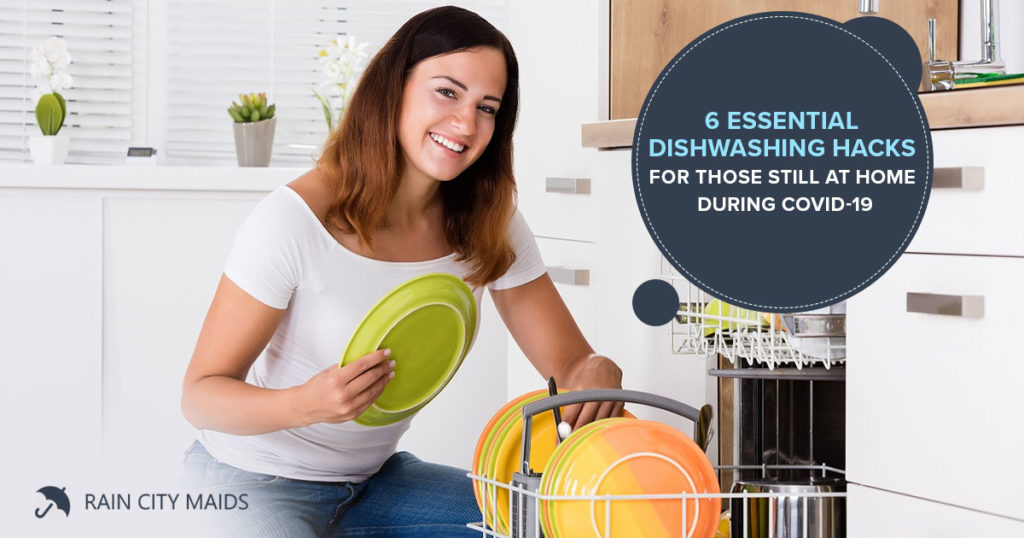Sometimes, the number of dirty dishes that pile up in your sink reaches ridiculous levels, and worse still; they can also sneak up on you. The phenomenon has intensified during the COVID-19 lockdown and continues as the pandemic doesn’t seem like it will go away soon. Washington state recently had to rollback Phase 3 reopenings, for example. So we still can’t go out as much as we would like and we have to use our dishes now more than ever. This calls for some serious hacks for cleaning dishes to regain control of our lives. Keep reading this blog to learn how to wash dishes fast and without too much effort.
1. Buy edible or paper plates.
Don’t underestimate the power of disposable dishes. Sure, the world needs less trash, and you could throw away anywhere from five to ten pieces a day, but there are several eco-friendly options you should check out. Most paper plates are biodegradable and recyclable, and you can buy some edible plates to leave no trace at all. Try these options to reduce the number of dirty dishes, but of course, you won’t escape the pile of plates that easily.
2. Plan your meals.
Know your enemy. Dirty dishes pile up without us noticing, but that’s precisely the problem: we aren’t conscious about our eating habits and the number of plates we use. Many of us even don’t have an established hour to cook or eat. Keeping control of your dishes is essential to plan a proper routine and use as few plates as possible. Plus, you will be on your way to have a better diet and health. Check the hour of the day when you use more of your cookware and try to do things more efficiently by scheduling your serious dishwashing at that time.
3. Buy dishpans.
Affordable, plastic dishpans are a basic need for your kitchen and dishwashing chores. Firstly, with a dishpan, you can accumulate dirty dishes without crowding your sink (that will save you a lot of work). Also, if you don’t have a double sink, use your dishpan to rinse and disinfect. Last but not least, using a dishpan could save lots of water and money for you, so don’t forget to own this useful tool.
4. Leave the grease to soak.
If you have a hard time scrubbing those greasy pans filled with sticky food residue, soak them in water as soon as possible and put some dish soap or degreaser to do the trick. Even better, when you finish your cooking, put the pan on the water and scrub the hot scraps to prevent them from sticking to your pan.
5. Use hot water.
As you probably know, warm or hot water is the best option to wash cookware. Not only will the grease and sticky food fall more quickly, but you will also kill more germs and other pathogens with a combination of hot water, dish soap, and perhaps a few drops of bleach. Use the hottest water you can stand. But there is an exception; dishes with dairy products or starchy foods have to be washed with cold water because the heat can make the food leftover even stickier.
6. Wash them in the right order.
Leave the dirtiest job for the end. Start your dishwashing with the less messy items like glassware, then eating utensils like plates. Save the pans and pots for later, and the dishes that have smelly food in them (like eggs crumbs). You don’t want to impregnate the rest of your crockery with those smells and grease.
Now that you know how to wash dishes by hand more efficiently and with the right method and tools, we hope these days of lockdown are more comfortable. If you wish to hire a professional cleaning and disinfection service for your home, don’t hesitate and book it on our website.
